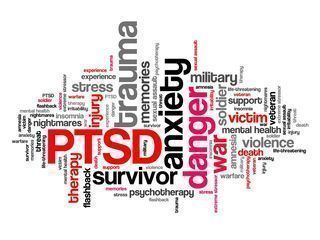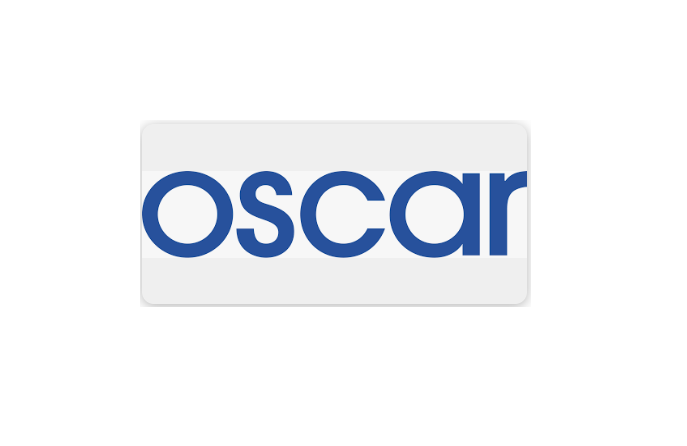ABOUT THE PROVIDERS
Dr. Eddie L. Blakes Jr.
DBH, MSAC, LIAC, BHP,
Psychotherapist
Doctor of Behavioral Health
Licensed Independent Addiction Counselor
Are you feeling overwhelmed by anxiety, depression, ADHD, bipolar disorder, anger, grief, loneliness, trauma, or a lack of motivation?
Do you find yourself turning to substances, alcohol, prescription misuse, recreational drug use, gambling, compulsive sexual behavior, pornography, emotional eating, binge eating, restrictive eating, excessive screen time, social media scrolling, online gaming, shopping, overspending, toxic or codependent relationships, people-pleasing, workaholism, chronic self-criticism, excessive caretaking of others or even explosive or suppressed anger as a way to cope?
If so, you're not alone, and help is available.
Dr. Eddie Lee Blakes Jr., DBH, LIAC, is a compassionate and highly trained behavioral health professional specializing in addictive, compulsive, and co-occurring behaviors, with a strong focus on the underlying emotional pain and trauma that often drive these patterns. With immediate openings, Dr. Blakes provides a person-centered, non-judgmental space where patients can safely explore their thoughts, feelings, and life patterns without fear of shame or stigma.
As both a Doctor of Behavioral Health (DBH) and a Licensed Independent Addiction Counselor (LIAC), Dr. Blakes brings a unique blend of clinical expertise, integrative care, and advanced education to every session. They tailor treatment using a range of evidence-based and expressive modalities, including Cognitive Behavioral Therapy (CBT), Dialectical Behavior Therapy (DBT), Eye Movement Desensitization and Reprocessing (EMDR), Motivational Interviewing (MI), Rational Emotive Behavior Therapy (REBT), Cognitive Processing Therapy (CPT), Trauma-Focused CBT (TF-CBT), Inner Child Work, Art Therapy, and Play Therapy. This flexible, trauma-informed approach allows Dr. Blakes to meet each patient where they are and guide them toward sustainable healing and growth.
Dr. Blakes is deeply committed to creating an inclusive and affirming environment for all patients, proudly offering specialized care to LGBTQIA+ and BIPOC individuals navigating identity, discrimination, generational trauma, and recovery. Every patient is welcomed, valued, respected, and empowered.
In addition to their clinical work, Dr. Blakes is known for their dedication to education, innovation, and advocacy within the mental health field. They work collaboratively with each patient to develop personalized strategies that support recovery, build resilience, and promote long-term emotional wellness.
All intake assessments are scheduled within 24 hours. Whether you're seeking help for addiction, trauma, emotional regulation, or behavioral challenges like anger, Dr. Blakes is here to support you with compassion, clarity, and expertise.
ABOUT THE PROVIDERS
Jamie Faraone
MA, LAAC, AADC
Jamie Faraone, MA, LAAC, AADC, has extensive experience working in the Behavioral Health and Substance Abuse field, helping individuals heal from addictions and co-occurring disorders, while learning how to cope with symptoms and triggers stemming from PTSD, depression, anxiety, and other mental health diagnoses. Jamie received her MA in Addiction Counseling in 2017 from Ottawa University and is currently enrolled in an MS in Forensic Medicine with an emphasis in Forensic Psychology at the University of Florida (online). Since 2005, she has worked with SMI and general mental health clients of all ages, as well as individuals who struggle with felony offenses, sex offenses, and Veterans. Jamie understands the challenges individuals and families face when a loved one is battling substance abuse and/or co-occurring disorders, and her passion is evident through her hard work and dedication to her clients.
Jamie currently holds an active and good-standing Licensed Associate Addiction Counselor (LAAC) credential through the Arizona Board of Behavioral Health Examiners, as well as an Advanced Alcohol and Drug Counselor (AADC) certification through the Arizona Board for the Certification of Addiction Counselors. Her therapeutic approaches include Solution-Focused Therapy, Cognitive Behavioral Therapy (CBT), Interpersonal Psychotherapy (IPT), and Person-Centered Therapy (CPT). Jamie believes that compassion and resilience are key components in beginning the healing journey.
Please note that this therapist is currently accepting new patients and would be honored to join you on your path to healing. All intake assessments will be completed within 24 hours.
This provider is under clinical supervision by Dr. Eddie Lee Blakes Jr. DBH/LIAC
ABOUT THE PROVIDERS
Rachel Jones
MSW, LMSW
With over 12 years of experience in mental and behavioral health, Rachel brings a compassionate, trauma-informed, and solution-focused approach to therapy for children, adolescents, adults, couples, and families.
Rachel holds a Master of Social Work (MSW) and Bachelor of Social Work (BSW) from Northern Arizona University, graduating with distinction and Summa Cum Laude honors, and is a proud member of Phi Kappa Phi Honor Society. She is a Licensed Master Social Worker (LMSW) in the state of Arizona and has received numerous accolades for her dedication to service excellence.
Rachel’s clinical expertise includes individual and group therapy, case management, crisis stabilization, and dual diagnosis care for clients experiencing mental health and substance use challenges. She is well-versed in DBT, CBT, Motivational Interviewing, and Mindfulness-Based practices, and has extensive experience in developing safety crisis plans, relapse prevention strategies, and comprehensive treatment plans. Her work is grounded in empathy, ethical practice, and a deep commitment to client-centered care.
Rachel has worked in diverse settings, including outpatient clinics, inpatient hospitals, schools, and community-based organizations. She has led therapeutic groups for adolescents and adults in IOP/PHP settings and has worked with clients struggling with severe mental illness, substance use, trauma, and co-occurring disorders. Her experience also includes time as a medical social worker in a Level One Trauma ER setting, providing acute care support during critical moments.
As a former program manager and team lead, Rachel also brings years of leadership and administrative experience, making her especially skilled in coordinating care, managing multidisciplinary teams, and advocating for families navigating complex systems.
Whether you're an individual seeking support, a couple working through relationship challenges, or a family navigating transitions or trauma, Rachel provides a safe, affirming, and structured environment to help clients move toward healing and resilience.
Please note that this therapist is currently accepting new patients and would be honored to join you on your path to healing. All intake assessments will be completed within 24 hours.
This provider is under clinical supervision by Dr. Eddie Lee Blakes Jr. DBH/LIAC
ABOUT THE PROVIDERS
Thomas D. Warren
MS, LAAC
Thomas D. Warren, LAAC, is a dedicated and accomplished behavioral health professional bringing over a decade of comprehensive experience in counseling, group facilitation, and client advocacy. He holds an MS in Addiction Counseling from Grand Canyon University, which underpins his expert training in a wide range of evidence-based therapeutic modalities, including Cognitive Behavioral Therapy (CBT), Acceptance and Commitment Therapy (ACT), Dialectical Behavior Therapy (DBT), and Solution-Focused Brief Therapy (SFBT).
Throughout his professional journey, Thomas has consistently demonstrated superior skills in addressing complex behavioral health issues. His expertise encompasses trauma, PTSD, substance use disorders (SUD), major depressive disorder (MDD), and generalized anxiety disorder (GAD), along with the specific challenges faced by individuals experiencing addiction, homelessness, joblessness, and re-entry into society.
Thomas is particularly adept at developing and implementing tailored treatment plans, conducting thorough assessments, and leading both individual and group counseling sessions. He has extensive experience working with diverse populations, with a specialized focus on the culturally based needs of the Native American and LGBTQ communities. In addition to direct client care, Thomas has a proven ability to coordinate effectively with case management, maintain detailed records, and ensure smooth patient transitions. His adaptability is evident in his expertise with both in-person and virtual learning formats, underscoring his commitment to accessible care. Thomas continually integrates academic knowledge with practical application, as evidenced by his publication in Teaching in Psychology, all to empower individuals on their path to recovery and well-being.
This provider is under clinical supervision by Dr. Eddie Lee Blakes Jr. DBH/LIAC
Accepted Health Insurances
- United Healthcare (Commercial Plans Only)
- Blue Cross Blue Shield
- Optum
- Optum/UHC EAP
- Optum/UHC (Medicare)
- Oscar
- AETNA
- Cigna
- UMR
- AHCCCS IHS (American Indian Health Program)
- Noridian/MEDICARE
Customer reviews
Follow
Intake Assessment
Contact Us
Important Notice on Documentation Requests
At VR PSYCH SERVICES LLC, we are committed to providing high-quality, ethical, and professional behavioral health care. Please be advised:
Due to AZBBHE professional licensing regulations, our providers are not authorized to complete or sign documentation related to:
- Family Medical Leave Act (FMLA)
- Short-Term or Long-Term Disability (STD/LTD)
- Emotional Support Animal (ESA) letters
- Workplace accommodations that require certification of medical necessity or the ability to perform job functions
We understand that these documents are important, and we encourage you to consult with your primary care physician (MD/DO), psychiatrist, or other qualified medical provider for guidance on these types of forms.
Thank you for your understanding and assistance in helping us maintain compliance with Arizona licensing laws.
















